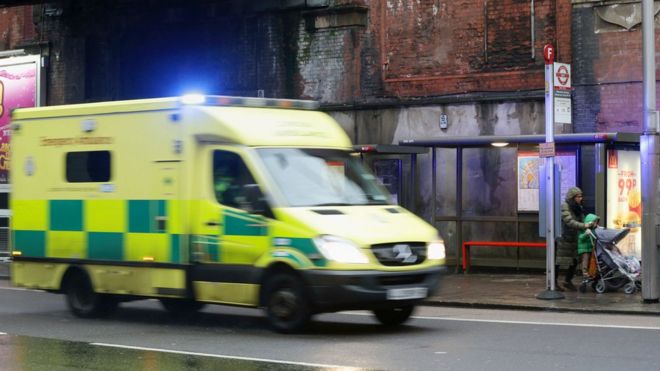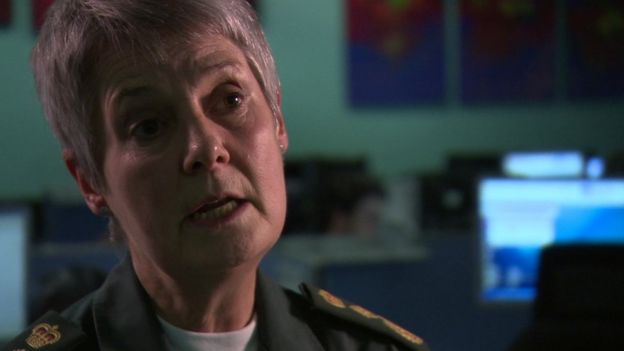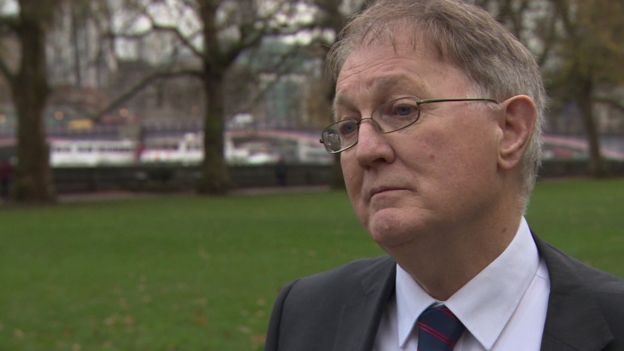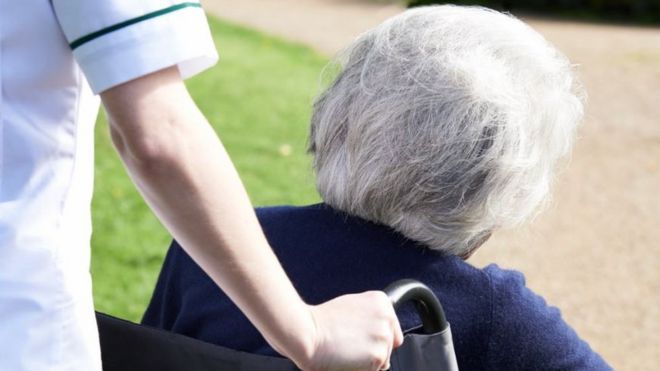London Ambulance Service rated 'inadequate' by inspectors
- on
 PA
PA
London's Ambulance Service (LAS) NHS Trust has become the first to be put into special measures after a recommendation by inspectors.
The NHS trust serves an estimated 8.6m people in the capital and has been performing "poorly" since March 2014.
Slow response times were highlighted as a major concern, along with a high number of unfilled vacancies.
The Trust said it had taken action to address its failings.
More on this story and updates from London.

Prof Sir Mike Richards, chief inspector of hospitals, said: "I am recommending that London Ambulance Service be placed into special measures, because I believe that this is the step necessary to ensure this vital service gets the support it needs to improve.
"The trust has been performing poorly on response times since March 2014. This is a very serious problem, which the trust clearly isn't able to address alone, and which needs action to put right."
A Care Quality Commission (CQC) inspection, which took place in June, found poorly trained staff, a lack of equipment and a reported culture of harassment and bullying.
Trust chief executive Dr Fionna Moore said: "We would like to apologise to Londoners and say how sorry we are that we haven't come up to the standards they should expect of us and we are working really hard to address those issues."
She said problems in recruiting staff were partly due to the high cost of living in London and a shortage of housing.
Despite this, she added, the trust had managed to recruit 167 new members of staff and more than 200 others were in training.
Until 2014 the trust was ranked as the best performing service in the country for dealing with emergency category A calls - requiring attendance within eight minutes - but was now only hitting that target 25% of the time.

GMB union national officer Rehana Azam said: "The underlying problem is a shortage of staff. There is a seriously high vacancy rate in the LAS and other ambulance services.
"We are pleased the CQC identified this and perhaps now it can be addressed in full.
"As a result of staff shortages, existing staff have had to shoulder more responsibility."
Analysis by BBC London political correspondent Karl Mercer
It was not the news they had hoped for, but it is perhaps no surprise that London's ambulance service has become the first to be put into special measures.
For more than a year it has struggled to meet response times and to find enough paramedics to work on the frontline.
Its well publicised search for staff has seen it recruit in Australia and New Zealand as it competes against an ever rising tide of calls.
This year will be its busiest ever with 1.9 million calls. That is more than 5,000 a day. But it knows it has to do better.
It is filling more of those vacancies and there is a new chief executive in place, but being put in special measures means they will get more help.
A new improvement director and experts from the Association of Ambulance Chief Executives will help. But here is the thing. Does being in Special Measures mean it will be harder to recruit new staff?
Being labelled as "inadequate" is hardly a great sales pitch to would-be paramedics. The LAS is not alone in London though.
It now sits with BartsHealth and Barking Havering and Redbridge hospitals as trusts wearing the unwanted tag of being in special measures.
The report identified the following problems at the trust:
- A high number of frontline vacancies
- Inappropriate staff training, exacerbated by low staffing levels
- Demoralised and stressed staff some of whom reported issues with bullying and harassment without any resolution
- Lack of senior staff supervision
- Failure to meet response target times
'Shocking'
Trusts like the London Ambulance Service are overseen by the NHS Trust Development Authority (TDA), whose associate director for London, Andrew Hines, acknowledged "significant improvements are required".
He said the TDA was making sure the Trust "has access to the best expertise available to help them to deliver their ambitious improvement plan".
"Londoners should feel confident that it is safe to call the ambulance service and that care is of good quality," he added.
Labour candidate for mayor Sadiq Khan described the report as "shocking" and joined calls from both the Lib Dems and Greens for the service to be devolved to City Hall.


